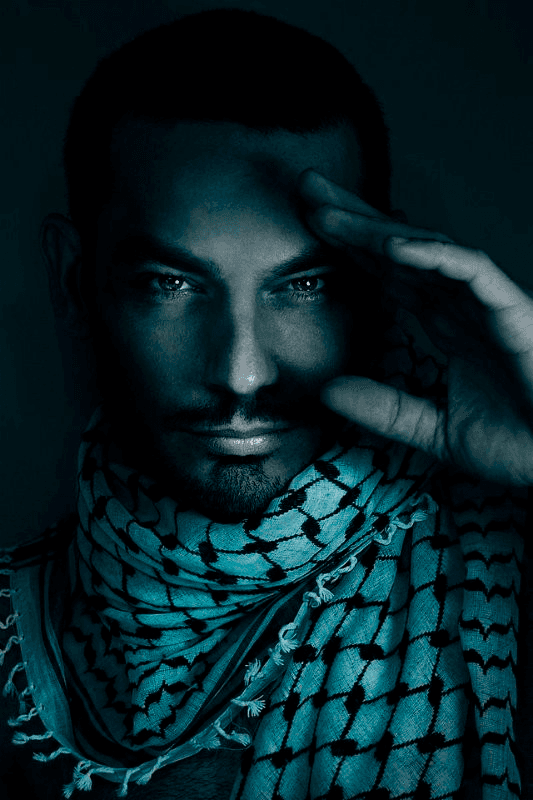Living in one of the world’s most oppressed nations is tough. For several decades now, Palestinian land, culture and style have all been under grave threat by Israeli oppression and occupation; But the Palestinians are tough people. Whether it’s by using traditional embroidery and weaving techniques, or simply by making a statement on the catwalk, here are 5 Palestinian fashion brands that are fighting back, with needle and thread.
1. Hirbawi Brothers’ Kufiyas
What once was used to protect from sunburn and sand has become a symbol of Palestinian nationalism. This eye-catching fabric of the black and white checked scarf known as a Kufiya first gained influence as a symbol of the Palestinian struggle against oppression when Yasser Arafat, the late Palestinian leader and icon of the resistance, wore it. In fact, he was hardly ever pictured without his trademark headscarf, and he also offered a Kufiya, (also spelled ‘Keffiyeh’) to all his distinguished visitors.
Unfortunately, today the symbol of Palestinian identity is largely cheaply made from tatty fabric and imported from China, but there is at least one factory, owned by the Hirbawi brothers from Hebron, that still makes the traditional Bedouin scarf using traditional quality fabrics and weaving methods. With growing international demand for the Kufiya, the brothers have broken away from the usual black and white pattern and have included different colours to their weaving repertoire, which has made the scarves more popular than ever–in fact, you can even see them being worn by celebrities like Cameron Diaz and Selena Gomez. It’s a smart purchase: not only can the Kufiya be used as a scarf, but it can also be fashioned into a tunic, reworked as a shoulder bag or transformed into a sarong.


